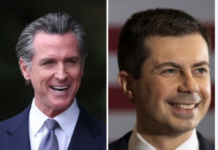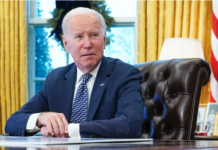Even before Donald Trump takes the oath of office as the 47th President, the winds of change are sweeping through the nation—and this one has the potential to revolutionize how America thinks about food and health.
Let’s start with California, which recently became the first state to ban certain food colorings and chemical additives in school meals. A progressive move? Sure. But as the left pats itself on the back, it’s impossible to ignore the timing: the Biden administration’s Food and Drug Administration (FDA) is suddenly rushing to review a similar ban on these additives nationwide. Coincidence? Not likely.
Enter Bobby Kennedy Jr., President-elect Trump’s pick for Secretary of Health and Human Services (HHS). Kennedy has long been vocal about the dangers of harmful chemicals in food and the influence of Big Food on public health policy. His nomination has ruffled feathers in the health establishment—and apparently lit a fire under the FDA, which now claims it’s “reviewing” whether to ban Red 3 and other additives in the coming weeks.
This newfound urgency from the FDA is, frankly, laughable. Where was this enthusiasm for protecting public health over the past four years? It took a letter from Rep. Frank Pallone Jr. (D-NJ) during a holiday season—when Americans are indulging in sweets loaded with questionable chemicals—to push the agency into action. Pallone didn’t mince words, describing these additives as “frightening” and accusing food companies of using them to “entice and mislead customers.”
FDA may outlaw food dyes ‘within weeks’: Bombshell move would affect candy, soda and cakes, revolutionize American diets https://t.co/mMR4beRZZG pic.twitter.com/yP98QA1xbR
— New York Post (@nypost) December 7, 2024
Meanwhile, health advocates like Calley Means and Chef Andrew Gruel are taking to social media to celebrate what they see as a long-overdue step toward a healthier food system. But as they rightly point out, why has the FDA allowed them for decades if these additives are so harmful? It’s a question that gets to the heart of the agency’s credibility—or lack thereof.
The irony here is rich. The Biden administration, which has largely ignored or resisted public outcry over food safety issues, is now racing to address them in the final stretch of its tenure. And let’s be clear: this isn’t about suddenly finding their moral compass. It’s about trying to outflank the incoming Trump-Kennedy team, which has made health reform—real health reform—a cornerstone of its agenda.
Even critics of Kennedy and Trump can’t deny the impact their looming leadership is already having. The possibility of Kennedy heading HHS has forced these issues into the spotlight, where they should have been all along. It’s a stark contrast to an administration that’s spent more time policing pronouns than protecting Americans from neurotoxic food dyes.
What this moment proves is that bold, meaningful change is possible when there’s political will. If President-elect Trump and Bobby Kennedy Jr. can put public health above industry lobbying, they’ll be doing something truly revolutionary. For now, credit where it’s due: the Biden administration’s sudden interest in food safety is a win for everyone, even if it’s clearly motivated by self-preservation.
As the countdown to Inauguration Day continues, it’s clear that this election isn’t just about who’s in the White House—it’s about a national reckoning on issues that matter. And if it takes the “threat” of real leadership to make progress, then maybe that’s exactly what the country needed.







